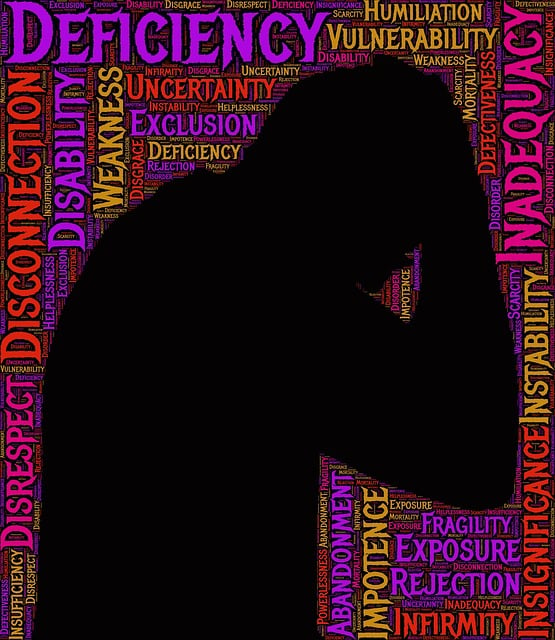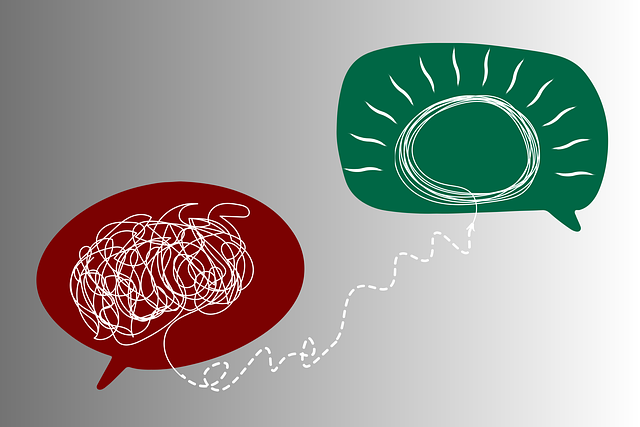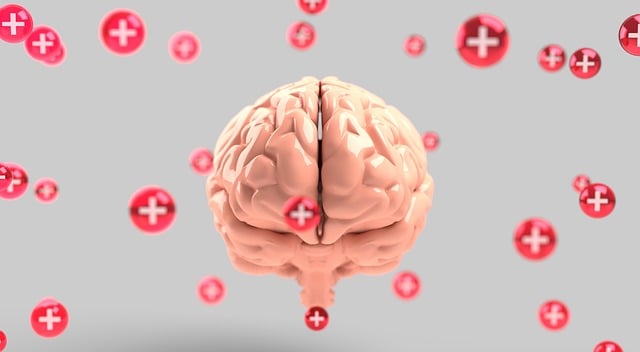Englewood Functional Neurological Disorder Therapy (EFNDT) is a groundbreaking approach combining physical rehab and mental wellness techniques for individuals with neurological disorders, significantly improving quality of life and fostering mental health awareness. To effectively reach communities, EFNDT prioritizes identifying needs through empathetic research and stakeholder engagement, followed by tailored programs like Mental Health Awareness campaigns and collaborative partnerships with local organizations. Strong partnerships enhance program impact and sustainability while rigorous evaluation measures ensure success and inform resource allocation for optimal community well-being.
Engage your community with effective outreach programs centered around Englewood Functional Neurological Disorder Therapy (EFNDT). This comprehensive guide explores the transformative power of EFNDT in addressing local needs. We delve into identifying target areas, designing impactful programs, and building strategic partnerships. Learn essential strategies for success and discover how to measure the profound effects of EFNDT initiatives on community well-being. Embrace a collaborative approach to bring about positive change through targeted outreach.
- Understanding Englewood Functional Neurological Disorder Therapy (EFNDT) and Its Impact on Communities
- Identifying Community Needs: Assessing the Local Landscape for EFNDT Outreach
- Designing Effective EFNDT Outreach Programs: Strategies for Success
- Building Partnerships: Collaborating with Local Organizations to Expand Reach
- Measuring and Evaluating the Impact of EFNDT Community Outreach Initiatives
Understanding Englewood Functional Neurological Disorder Therapy (EFNDT) and Its Impact on Communities

Englewood Functional Neurological Disorder Therapy (EFNDT) is a unique approach that has been making waves in community healthcare. This innovative therapy focuses on improving individuals’ lives affected by neurological disorders, such as stroke, traumatic brain injury, or developmental conditions. By combining physical rehabilitation with mental wellness techniques, EFNDT aims to restore and enhance function, promoting independence and improved quality of life for participants.
The impact of this therapy extends far beyond individual patients, reaching into communities at large. Through organized programs and the Mental Wellness Podcast Series Production, EFNDT shares its Mind Over Matter principles, increasing Mental Health Awareness. This not only empowers individuals with knowledge about managing their conditions but also fosters a supportive community that understands the challenges and triumphs of neurological recovery. The approach has been praised for revolutionizing rehabilitation, offering hope and practical strategies to those navigating the complexities of functional neurological disorders.
Identifying Community Needs: Assessing the Local Landscape for EFNDT Outreach

Identifying community needs is a critical first step for implementing effective outreach programs like Englewood Functional Neurological Disorder Therapy (EFNDT). To assess the local landscape, it’s essential to conduct thorough research and engage in active listening. This involves understanding the unique challenges and cultural dynamics of the area, including identifying populations that may be underserved or face barriers to accessing support. By incorporating empathy building strategies and compassion cultivation practices, EFNDT can build trust and foster relationships within the community.
This process requires an open-minded approach that values emotional intelligence—the ability to recognize and understand emotions in oneself and others. Through focused conversations with local stakeholders, including community leaders, healthcare providers, and individuals already engaged in similar initiatives, it’s possible to pinpoint specific areas where EFNDT can make a meaningful impact. This data-driven approach ensures that outreach efforts are tailored to meet the most pressing needs of the community.
Designing Effective EFNDT Outreach Programs: Strategies for Success

Designing effective Englewood Functional Neurological Disorder (EFNDT) outreach programs requires a multifaceted approach that combines education, empathy, and actionable strategies. The first step involves raising Mental Health Awareness by breaking down misconceptions about Functional Neurological Disorders through targeted campaigns and community events. Engaging with local organizations, schools, and faith-based groups can help in creating a supportive network where individuals affected by EFNDT feel understood and empowered.
Implementing successful outreach programs also includes integrating Self-Care Practices tailored to the specific needs of those living with EFNDT. This could involve workshops on stress management, mindfulness techniques, and adaptive strategies for daily life challenges. Moreover, Risk Management Planning for Mental Health Professionals is crucial to ensure they are equipped to handle complex cases sensitively and effectively. By fostering open dialogue, providing practical resources, and promoting holistic care, these initiatives can significantly improve the quality of life for individuals navigating EFNDT.
Building Partnerships: Collaborating with Local Organizations to Expand Reach

Building strong partnerships with local organizations is a key strategy for expanding the reach of community outreach programs, particularly when focusing on underserved populations like those with functional neurological disorders (FND), such as Englewood Functional Neurological Disorder Therapy. By collaborating with schools, community centers, and non-profit groups already established within these communities, organizations can tap into existing networks and trust relationships. This collaborative approach allows for more effective dissemination of resources, knowledge sharing, and joint programming that caters to the unique needs of the target population.
These partnerships can enhance the overall impact and sustainability of outreach initiatives. For instance, working with local schools enables the integration of resilience-building activities into educational curricula, promoting emotional well-being promotion techniques from an early age. Collaboration also facilitates knowledge exchange among professionals, fostering better understanding and more nuanced emotional regulation strategies tailored to the specific challenges faced by individuals in the community.
Measuring and Evaluating the Impact of EFNDT Community Outreach Initiatives

Measuring the impact of community outreach initiatives is vital for understanding the effectiveness of programs like Englewood Functional Neurological Disorder Therapy (EFNDT). By implementing robust evaluation strategies, EFNDT can assess how its compassion cultivation practices and healthcare provider cultural competency training translate into tangible benefits for the community. This involves tracking key indicators such as the number of individuals reached through outreach efforts, their satisfaction levels, and improvements in mental health outcomes, including mood management skills.
Regular assessments enable EFNDT to identify areas of success and areas requiring refinement. It also allows them to share their findings with stakeholders, demonstrating the value of their initiatives. This data-driven approach fosters continuous improvement, ensuring that resources are allocated effectively to meet the evolving needs of the community, ultimately enhancing overall well-being.
Implementing successful community outreach programs for Englewood Functional Neurological Disorder Therapy (EFNDT) requires a multifaceted approach. By understanding local needs, designing effective strategies, building partnerships, and rigorously evaluating impact, communities can harness the power of EFNDT to create positive change. These initiatives not only expand access to vital therapies but also foster a more connected and supportive environment for individuals living with functional neurological disorders.














